“Everyone is capable of breaking the limits they have”
Meet Max and Marcus Laudan, the twin Free Athletes from Berlin making their mark on the tennis scene. Both brothers are in the top 50 tennis players in the world, and have achieved this all while completing their university studies. Think that‘s impressive? What if we also told you that they have spent the majority of their life in wheelchairs, unable to walk? Yes, life may have hit these guys a tough serve, but they stayed in the game and returned it twice as strong. If you think their “limit” stops them, you’re about to be proven wrong.Read on to discover the story of the Tennis Players and how Freeletics helped them redefine their limits.
When did you first notice that something wasn‘t right?
“Shortly after we were born the doctors realized there was something wrong with our arms and legs. However our early childhood, up until the age of 5, was completely normal. We could run and climb trees and play just like the other kids. But when we reached Kindergarten, this all changed. Over time, it was clear our legs weren‘t growing properly, and we were also a lot smaller than the other kids. We had developed such severe pain in our legs that we couldn‘t walk or sleep anymore. This is when the ‘marathon of surgeries‘ began.“
“We were diagnosed with a rare disease called multiple epiphyseal dysplasia. Since only 13 people in Germany have this, there isn‘t a lot of information available. Basically, it is a disorder of cartilage and bone development which mainly affects the ends of the bones in the arms and legs. It is painful but also a functional problem, so it affected our ability to walk and forced us to use wheelchairs.”
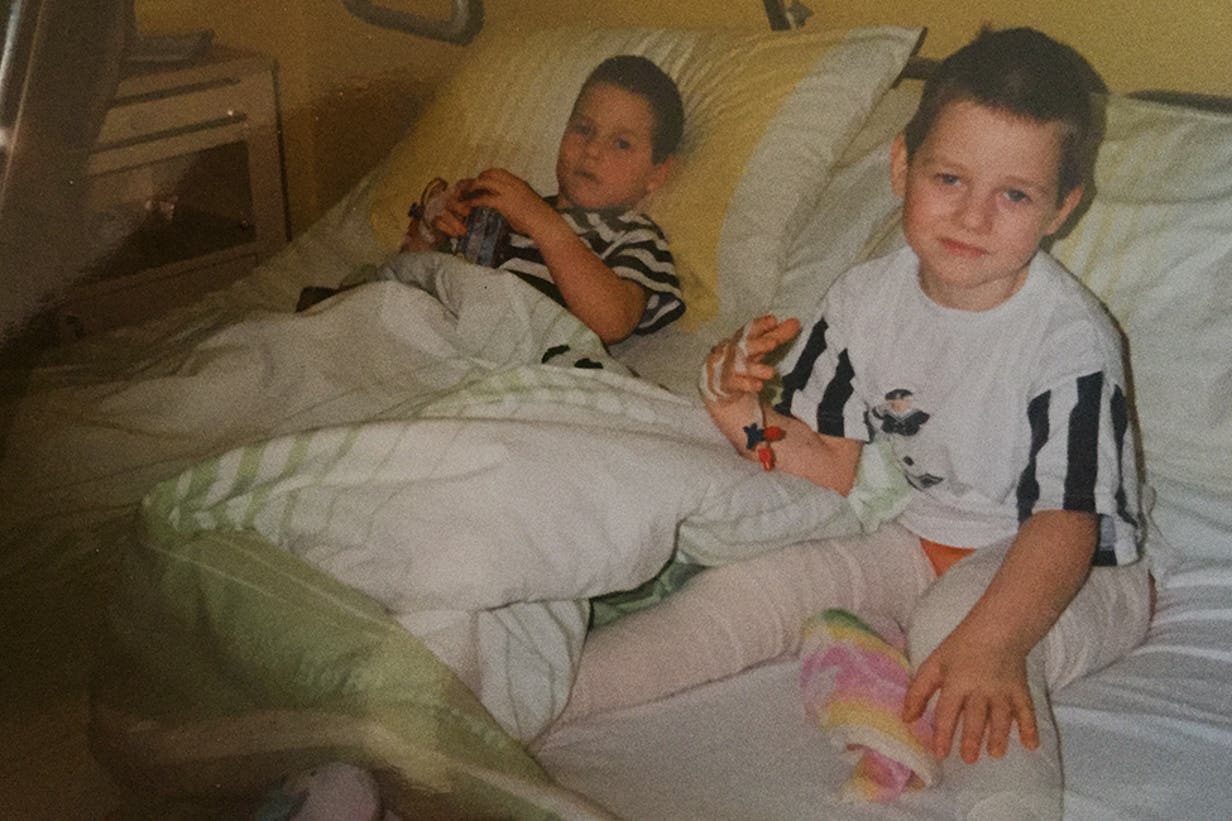
What was it like to go through this marathon of surgeries?
“Many friends have asked us about our surgery experiences, but to be honest we don‘t have a lot of memories of this time. It‘s as though our brains have deleted all scenes of it, and we are just left with a few pictures. For 5 years it was just a cycle of getting surgery, recovering, and getting more surgery. It was tough because each time, you thought to yourself ‘this is it, after this I will be able to walk‘, but it never worked. There was always a new problem and always a new reason to get surgery, and each time we grew a little bit weaker. But we were always together which made us grow closer than ever. We felt the same pain at the same time. Every hard moment we faced together.”
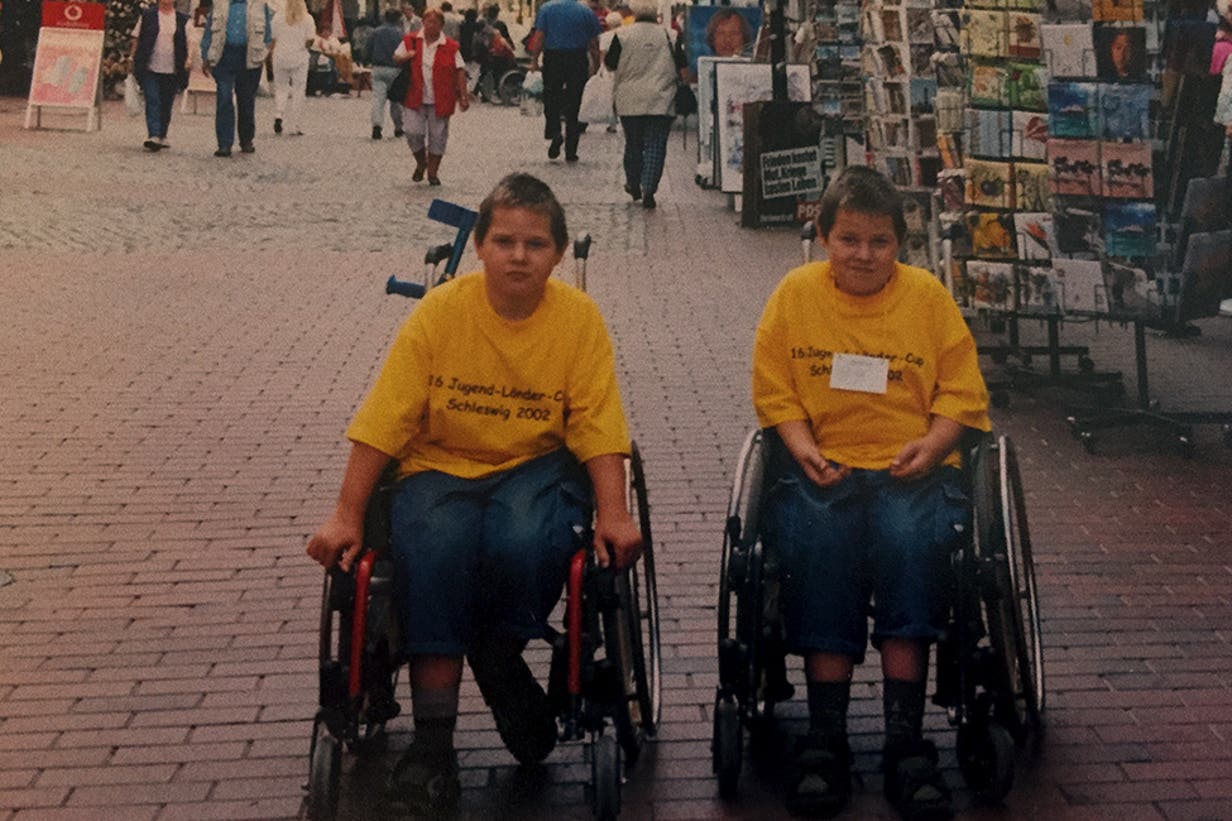
How was it to grow up with a disability?
“When you‘re young, you don‘t realize that something is actually wrong and you don‘t feel different from the other children. You just know that you have pains and that you can‘t sleep that well. Spending a lot of time at the hospital became a normal thing, and we got used to going there on a regular basis without knowing why, or what would happen next. We were told again and again that everything would be fine after the next surgery and the one after that, but it wasn‘t.”
Marcus: “Coming back to school after the surgeries was not always a great experience. Everyone would look at me and think ‘who is this guy?‘. I think maybe they just saw the wheelchair and not me anymore. And even though it was cool to get help from people sometimes, it did make me feel different. But I don‘t see being in a wheelchair as a real disability. I control my own life, not the wheelchair.“
Max: “Because of all of the operations, I didn‘t do any exercise for a long time and I got really fat. I was also new to the school, and I was in a wheelchair. All if this made me extremely insecure, and I got bullied. Going to school wasn‘t a great time for me, I just went to class, but I didn‘t enjoy it at all. Eventually I changed schools to get a fresh start. I also started to work out and play tennis. This is when everything changed for me.”
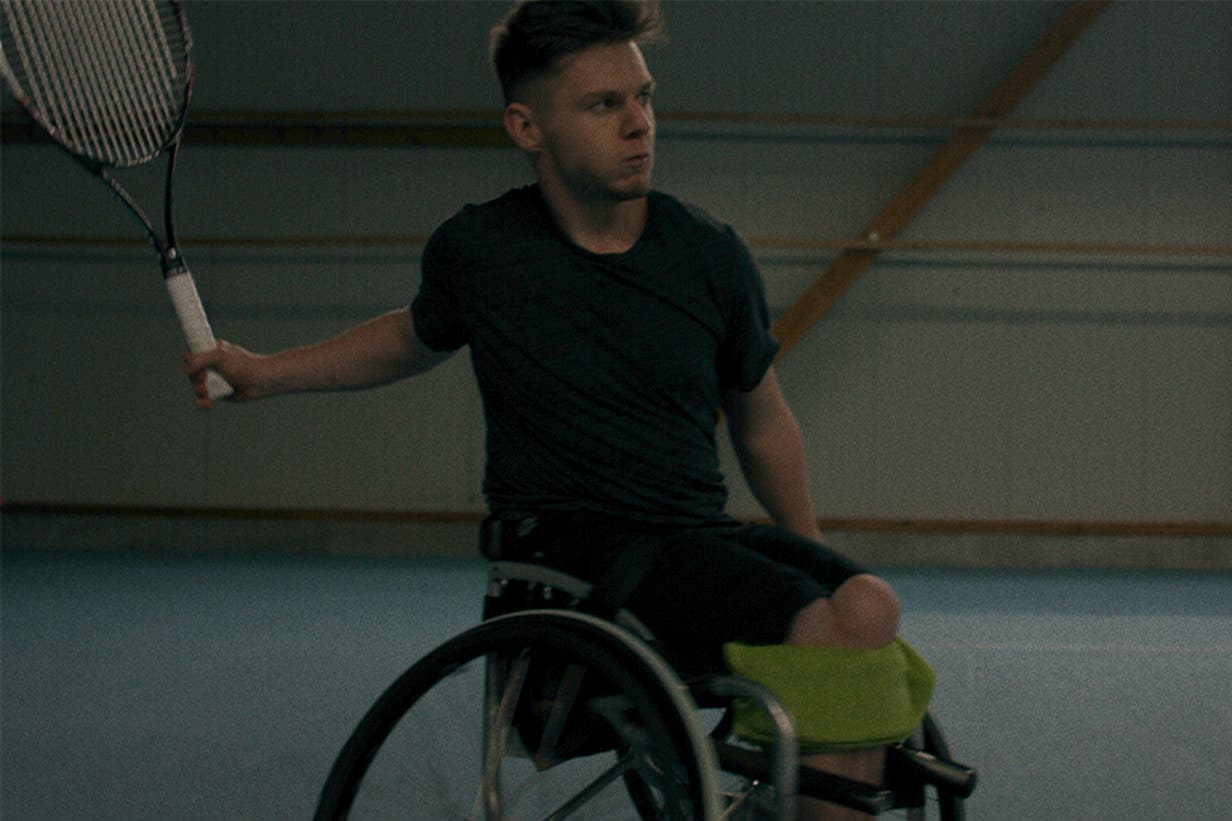
How did you first get into tennis?
Marcus: “We started playing tennis at the age of 12. Our big brother and our mother introduced us to the sport, and we were immediately hooked. It‘s such a fast game that is so full of technique and requires a lot of strength and coordination. Learning to play tennis in a wheelchair was super challenging, but gave us both something to work towards. It was tough in the beginning to drive the wheelchair fast enough to reach the ball, and also remember that you have a racquet in your right hand. You really need to develop a good feeling for where the ball will bounce. One of the things I love the most about tennis is that you can really see yourself improving so much, that the more you train the more you are rewarded. It gave us the feeling that we were in control again.“
What is it that draws you to the sport?
Max: “Tennis is not just a physical sport, it‘s also important to have a strong mind and to know how to play against your opponent. Marcus is the best training partner for me because we’re always in competition. But we also help each other to improve and strive to reach the same goals. This is what we did our entire life. By pushing each other in hard situations, we were able to become as strong as we are today. It‘s a cycle of giving and taking without thinking about the situation.”
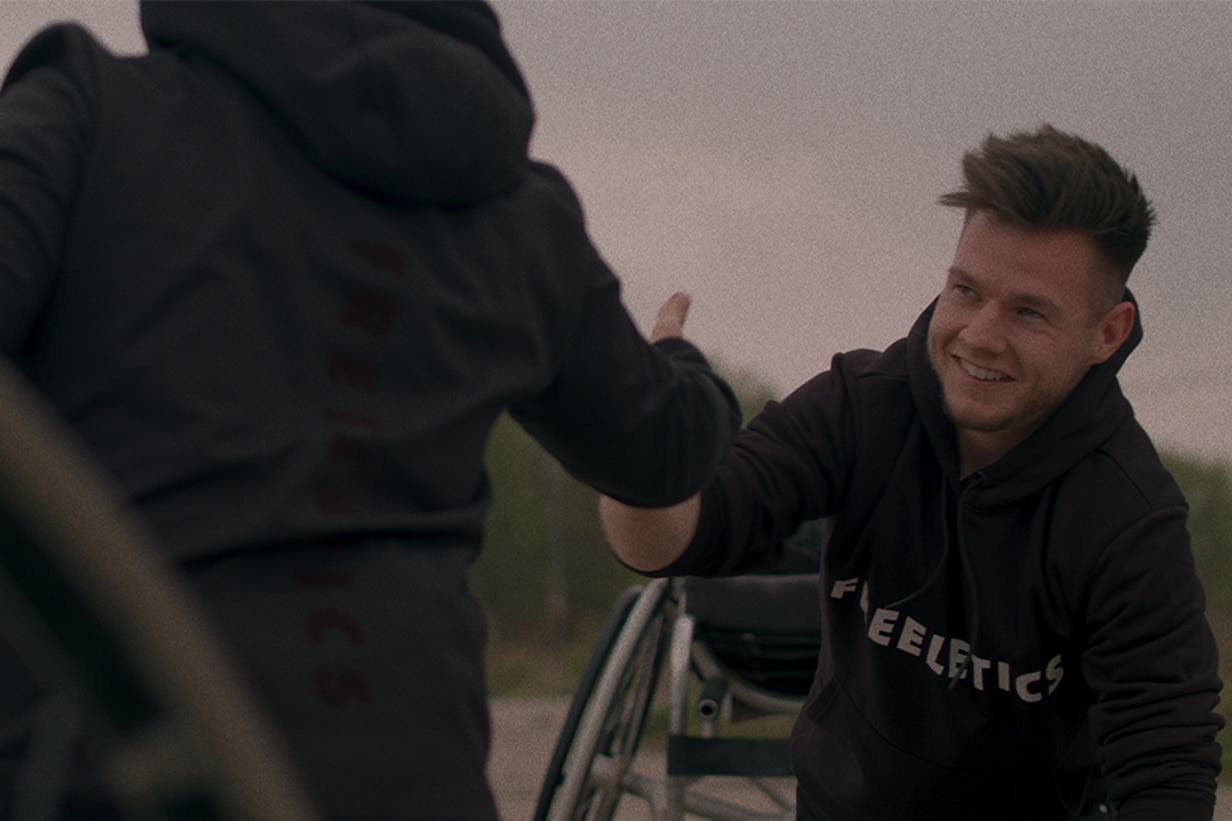
When did Freeletics come into the picture?
Marcus: “I started experiencing a problem with my shoulder which stopped me playing for a long time. During this break, I wanted to continue some form of training so that I was still fit for when I could play again. At first I tried going to a gym, but I didn‘t feel comfortable there as I had to leave my wheelchair outside and train on the ground. It felt as though I was taking my legs off, and I didn‘t want to show my weakness in public. I started to search on the Internet for alternatives, and that‘s when I found Freeletics. At first it was super tough. I couldn‘t believe it. I thought about quitting halfway through, but I stuck with it. I started to train more and more often, and could see myself improving each day. Eventually, my shoulder didn‘t hurt anymore and my tennis ability improved. My hits were stronger and I could play longer without experiencing any pain. I really believe this is because of Freeletics.”
Max: “Marcus had already started training with Freeletics at home and I saw how it was helping him to improve his skills and ease his pain, so I decided to try it for myself. I keep training with Freeletics, because it helps me to continue playing the sport I love. Because the workouts have to be completed as fast as possible, you can‘t stop and think about it, you just have to do your best. I love competing with myself and always trying to be better than I was yesterday.”
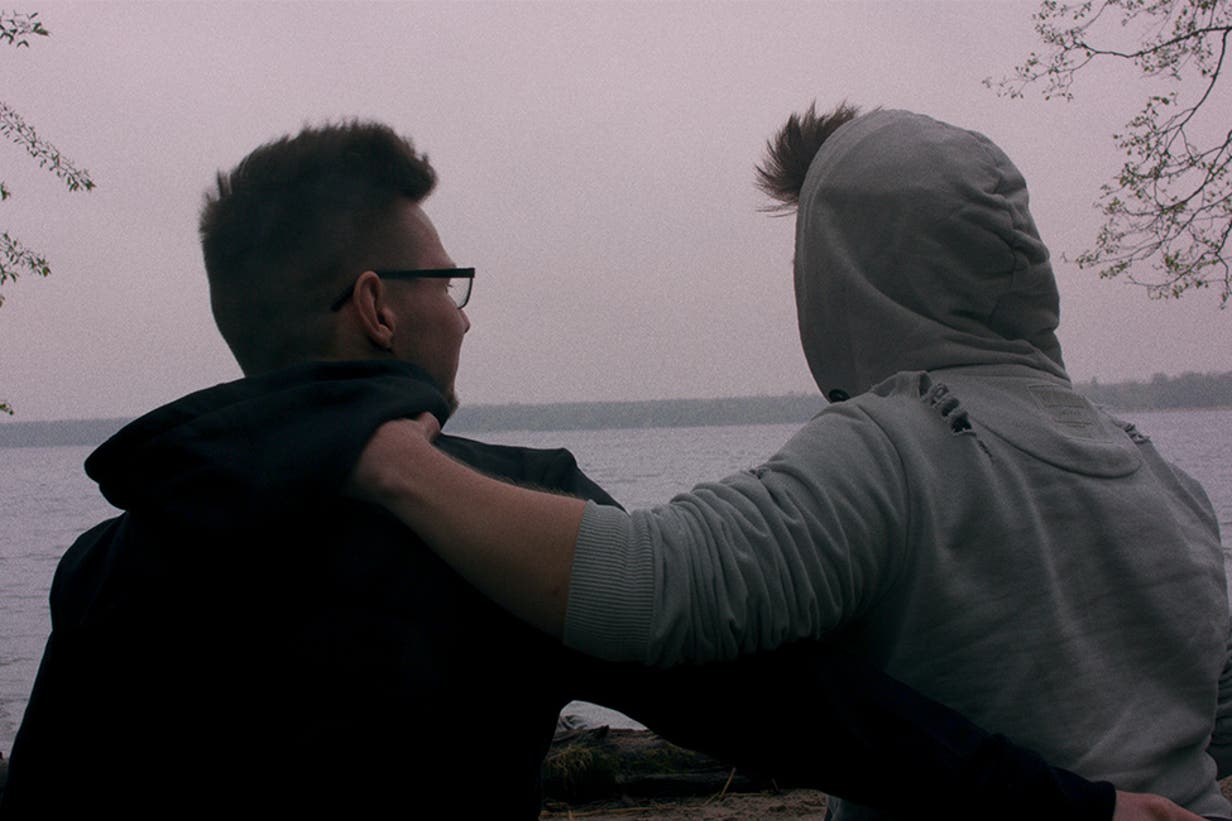
You’ve accomplished so much already, we’re intrigued to see what’s next for you two?
Marcus: “I have more than one dream. Of course, my career is now a huge priority, but I would also like to play in the Paralympics. It would be great to do this with my brother. I don‘t want to grow old and feel like I didn‘t do the things I wanted to do. I think now is the best time to make my dream come true.“
Max: “I want to play in the 2020 Paralympic games and continue my journey to becoming a professional athlete. My main goal is to join, but since I have already beaten a number of top 10 players, maybe I can achieve something really big.”
As the faces of the new Redefine Your Limits campaign, how would you say that you redefine yours?
Marcus: “I have always lived my life with a ‘no excuses‘ mentality. Having to navigate through life with my disability forced me to adapt and learn a lot of new things quickly, like riding the bus alone and even putting on a sock. Although I never said this sentence out loud before I started using Freeletics, it was always my attitude in life. If you always make excuses, you‘ll never know your limits.“
Max: “Tennis helps me break the limits I face in my everyday life. I used to be afraid to do certain things, like fly to different cities for tennis tournaments, for example. But I love tennis so much that I decided to face these fears, and got on many planes to play in many different tournaments around Europe. Marcus was also a huge support system for me. If I didn‘t have him, I would be a totally different person than I am today, and I wouldn‘t reach any goals. But I think you can do anything if you give it your best. Everyone is capable of breaking the limits they have.“
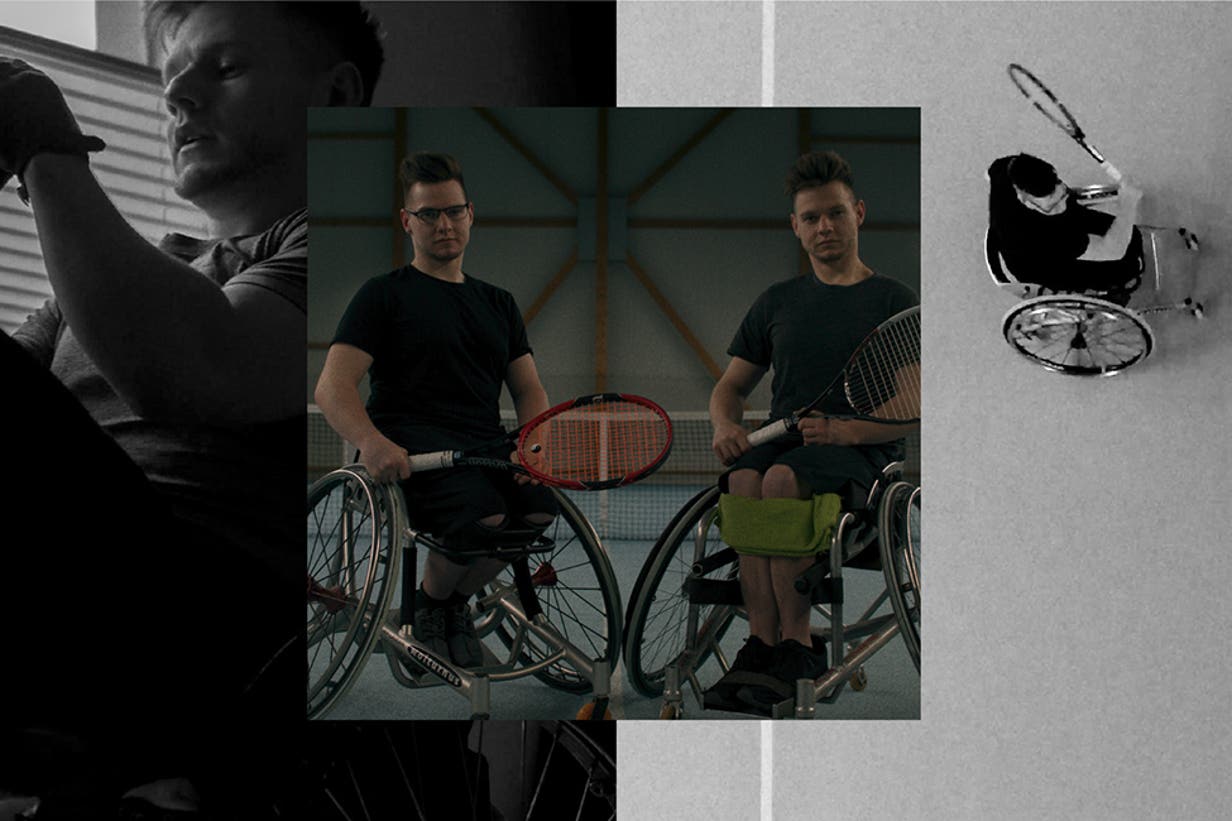
Find out how they continue to redefine their limits, both on the court and in the app, and start redefining yours with Freeletics.